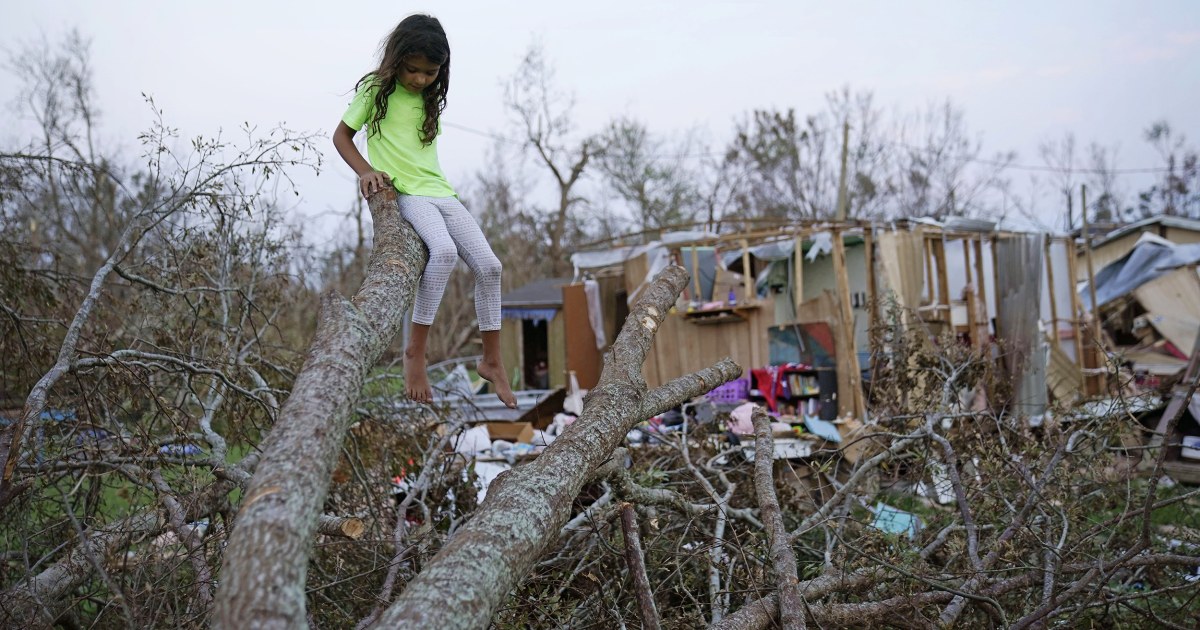
Intense concern about climate change is rising among people from several major economies, according to a survey released Tuesday by the Pew Research Center which found that 72% of respondents were concerned that climate change would harm them personally at some point in their lives.
The survey included more than 16,000 people across North America, Europe and the Asia-Pacific region and represented people’s views on the threat of climate change, their willingness to make personal sacrifices to address it, and their perceptions of international efforts to curb global warming.
The survey was conducted in the spring, but its launch comes after a series of extreme weather events, ranging from devastating floods in Germany, China and the United States to sweltering waves of heat in the northern hemisphere, which has hit several continents in recent months.
Most countries experienced a sharp rise in those who said they were “very concerned” that climate change would affect them personally during their lifetime.
In Germany, for example, 18 percent of people were “very concerned” in 2015, compared to 37 percent this year. Australia experienced a comparable increase, with 34 per cent of people saying they were “very concerned” about climate change, a 16-point increase over 2015.
Only Japan recorded a significant decline in those who are very concerned about climate change. Pew researchers found a decrease of 8 points, up to 26%, compared to 2015.
In the United States, those views have not changed significantly since 2015, they said.
Public concern about climate change will be a key driver of negotiations between nations at the next United Nations conference on climate change in November, where world leaders are expected to set aggressive emissions targets to combat climate change. global warming in line with the goals of the Paris Agreement.
The Pew report found that 80 per cent of those surveyed were willing to make changes in their way of life and work to help reduce the impacts of climate change. However, reviews of current efforts were more mixed, with only 56% of people responding that society is doing “a lot” or “a little good” work to deal with global warming.
The survey also found ideological differences in people’s willingness to make personal sacrifices to cope with climate change. Those on the left, in general, were more willing to adjust their lifestyles to reduce the impacts of global warming, with 94 percent of those who identify with the U.S. ideological left saying they would be willing. to do “some” or “many.” changes in the way we work and live, compared to the 45% who identify with the ideological right.
Similar differences were found in Australia, Canada, Germany, and the Netherlands, although the largest ideological gap was found among people in the U.S.
Respondents covered the United States, Canada, Belgium, France, Germany, Greece, Italy, the Netherlands, Spain, Sweden, the United Kingdom, Australia, Japan, New Zealand, Singapore, South Korea, and Taiwan.
In the study, younger people tended to be more concerned about global warming compared to older adults. In the United States, 71 percent of people ages 18 to 29 were “very” or “a little worried” that climate change would affect them personally during their lifetime, compared to 52 percent of people. over 65 years.
Similar differences were found between age groups in Australia, New Zealand, France and Canada. The largest age gap was found in Sweden, where 65% of young people aged 18 to 29 expressed concern about the personal impact of climate change, compared with only 25% of adults aged 65 and over. or more.
Youth activists have led climate protests around the world and pushed leaders to take more aggressive measures to combat global warming. But while young people are an integral part of the solution, they are also among those most affected by climate change.
A separate prepress study, reviewed by Lancet Planetary Health magazine, linked government inaction on climate change to psychological distress and climate anxiety in young people. In this survey, which involved 10,000 children and young people from 10 countries, 74% of respondents said they believed “the future is terrifying”.
Forty-five percent of young people in the study said that climate anxiety and distress affect their daily lives and functioning and that nearly two-thirds of respondents said governments are not doing enough to protect them from climate change.
“It’s shocking to hear how so many young people around the world feel betrayed by those who are supposed to protect them,” Liz Marks, a tenured professor of psychology at the University of Bath in the UK and co-author of the study, said in a statement. “Now is the time to face the truth, listen to young people and take urgent action against climate change.”

